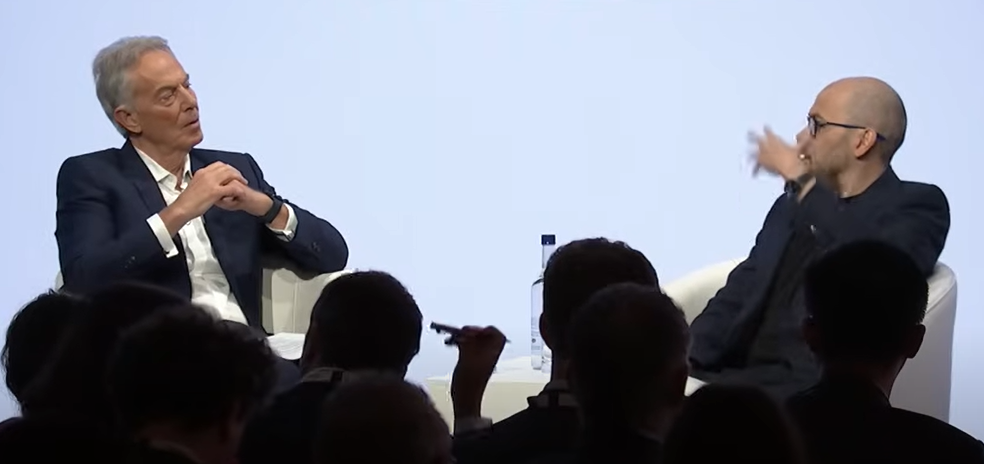“How big is this? Give us a sense of where you think this fits in the sort of history of innovation and economic advance,” Tony Blair asked Demis Hassabis, Co-Founder and CEO of Google DeepMind, at the Future of Britain Conference 2024.
Hassabis responded by framing AI as potentially one of humanity’s most transformative inventions.
“It will be at least as big as the Industrial Revolution, possibly you know bigger, more like the advent of electricity or even fire,” he said. “I think it has the potential to be one of the biggest inventions humanity will ever make.”
The conversation explored the wide-ranging implications of AI across various sectors. Hassabis stressed the potential for AI to accelerate scientific discovery, citing DeepMind’s AlphaFold program as an example.
“We’ve led the way in that and probably the most famous example of that is our program AlphaFold which solved the problem of 50-year kind of grand challenge of what’s called protein folding,” he explained.
Blair inquired about the practical applications of AI, particularly in public services like the NHS. Hassabis outlined several potential uses, including drug discovery, personalized medicine and preventative healthcare. He noted: “There’s sort of enormous new opportunities as well of things like personalized medicine where you know you potentially design a drug or a treatment that’s specifically tailored to an individual’s metabolism.”
The discussion then turned to the current state of AI and its future development.
“How much better are they going to get, how faster?” Blair asked. Hassabis acknowledged the ongoing debate in the field about the pace of improvement but expressed his belief that further innovations are necessary.
“It’s my opinion that I think we’re still going to need a few more big innovations before we get all the way to human level intelligence, to artificial general intelligence,” he stated.
Addressing the UK’s position in the global AI landscape, Blair asked what the country should be focusing on. Hassabis paid attention to the UK’s strengths, including its universities and talent pool. He advocated for the UK to play a leading role in international AI cooperation and governance.
“I think the UK can be kind of leading in the sort of technology but also a kind of middle way if you like,” he suggested.
The interview concluded with a discussion on the importance of government engagement with AI. Hassabis stressed the need for policymakers to understand the scale of the AI revolution.
“I think it’s important we have this international dialogue, international cooperation around both the opportunities and also some of the risks to do with AI,” he said.
As AI continues to advance rapidly, conversations like this between political leaders and AI experts become increasingly crucial. They highlight the need for informed policy-making and international cooperation to harness the potential of AI while addressing its challenges.
Featured image: Credit: Future of Britain Conference 2024





